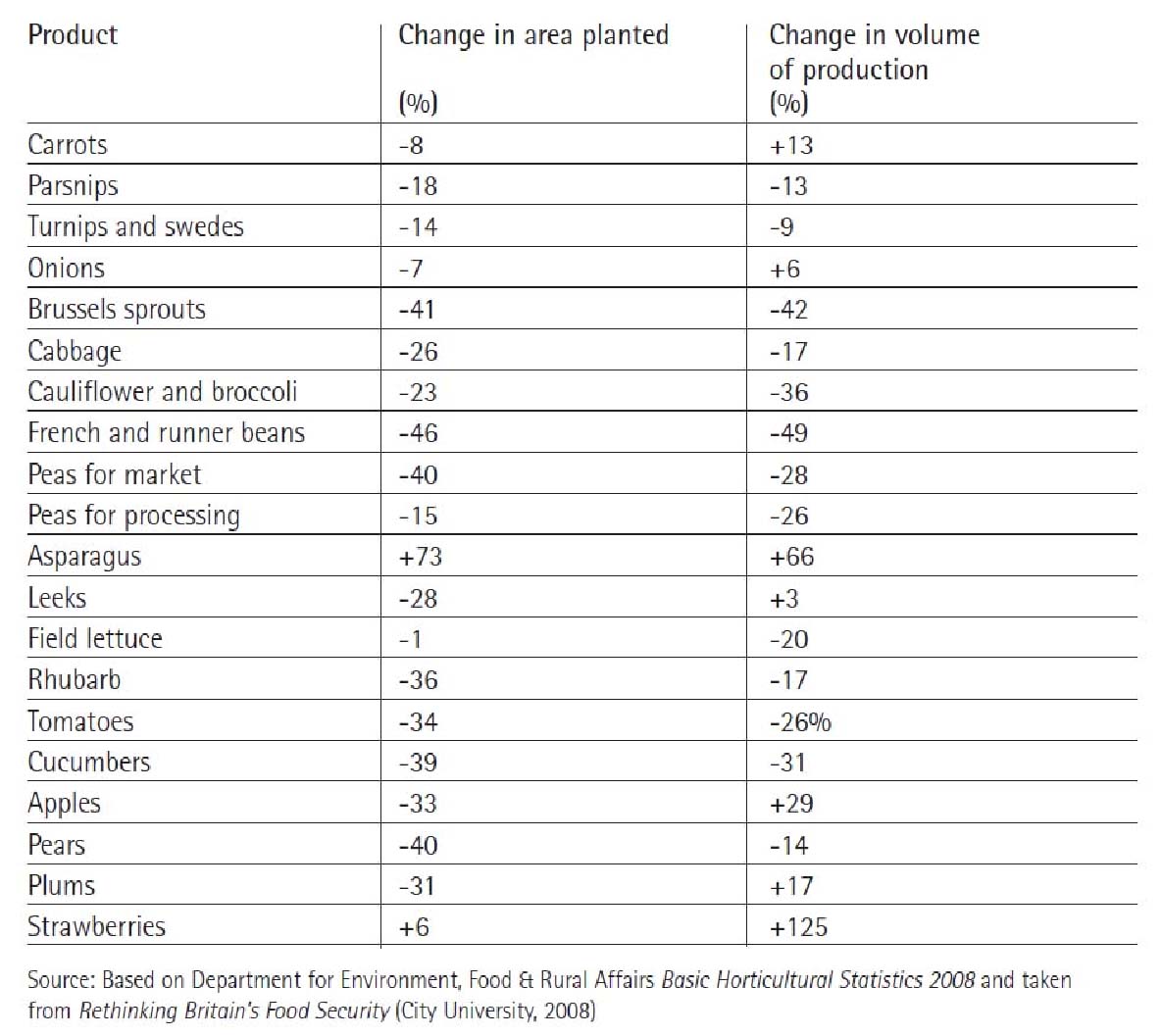|
What's Going On @ Wellesbourne?
****JavaScript based drop down DHTML menu generated by NavStudio. (OpenCube Inc. - http://www.opencube.com)****
|
 |
|
Google Group for Staff & Scientists @ Wellesbourne
This page is aimed to help save the Warwick (HRI) Research station. We welcome all comments that can further that end. I (Charlie Clutterbuck) can make alterations easily and can develop the site accordingly Click for more about who/what is behind "Sustainable Food" |
Warwick (HRI) What Benn needs to tell University Chief (and remind himself too) It beggars belief that this research should be under threat just when we are begining to realise the failings of the last 20 years in food provision. There are three important areas of concern - food security, sustainable agriculture and bad diet, and vegetables feature highly in each. Food Security In the UK we produce only 60% of the food we eat, and less that 3/4 of what we could produce. In the last couple of years there has been a greater realisation about "Food Security" as we were after the war. Vegetable production has decreased over the last 30 years
and especially in the last 10 years I was Specialist Adviser to a recent EFRA report called "Securing UK Food Supplies to 2050" (responses) which said that we have to produce "more food , more sustainably". I advised that increasing vegetable (and fruit) production was the preferred root to increasing food supplies as they produce less pressure on our land than increased wheat & rape production. Sustainable Agriculture Peas and beans have been fixing nitrogen for years in classic rotations, still the centre of any more sustainable agriculture. The World Health Organisation recognise vegetable and fruit production as the crux of any more sustainable food production. "Fortunately, the strategies needed to create desired changes in nutritional and environmental patterns are often complementary and, as a whole, provide cost-effective, sustainable development for agricultural land....In addition, local strategies that seek to improve the availability of, access to and consumption of locally produced foods, particularly fruits and vegetables, also increase the interdependence and thus the social cohesion between urban and rural dwellers" Poor Nutition The government's "Food Matters" report spelt out that there are now 70,000 early deaths each year due to poor diet. While lots of words are spoken, Britain's children are getting fatter quicker than anywhere else. There is a simple solution: "Eat more vegetables a day". There is a crying need to have a wide range of varieties that are appealing and can be grown in our climes. Clearly vegetable research has a vital role to play on all these fronts and provides the joined up thinking that is desperately needed. There is a need to make sure that in future rounds of CAP funding, fruit and vegetables should attract support (we are not supposed to call it subsidy any more CC ed). Warwick HRI research & Development has shown more imagination and foresight into the sort of researtch required than many others. There are initiatives like the Incredible Edibles in Todmorden who plant vegetables all over the town. Warwick HRI could provide a focus for the local vegetable growing networking that needs to grow, as well as provide the research and advice to develop appropriate varieties and growing methods for the future. |



 (
(